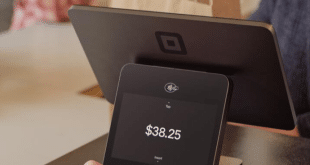When it comes to general-purpose mobile payments, PayPal Inc. is far and away the leader, having posted $46 billion in mobile charge volume last year. But recently, the mobile-payments spotlight has been trained on Apple Inc. with its new Apple Pay service, Google Inc. and the suddenly brightening prospects for its Google Wallet thanks to the company’s acquisition of the Softcard wallet, and smart-phone manufacturer Samsung Electronics Co. Ltd.’s brand new Samsung Pay.
It didn’t help that the much-vaunted effort by PayPal, whose core service is online payments, to become a point-of-sale payments powerhouse seemed to be petering out, capped by the January departure of Don Kingsborough, the executive in charge of that effort. The Home Depot Inc. was an early adopter, but few other big retailers followed.
But on Monday, PayPal was back in the fray with the news that it plans to buy Paydiant Inc., a respected mobile-payments startup. Paydiant’s customers for its white-label wallet technology include the Subway sandwich chain; Capital One, a big credit card issuer and banking company; the pending CurrentC mobile-payment service from Merchant Customer Exchange; the Harris Teeter grocery chain, and the big payment processor Fidelity National Information Services Inc. (FIS). Sources tell Digital Transactions News that the purchase price will be at least $280 million, but neither PayPal nor Paydiant would disclose numbers.
Chris Gardner, Newton, Mass.-based Paydiant’s cofounder, tells Digital Transactions News in an exclusive interview that a deal between the two companies had been in the works for months. Paydiant integrated the PayPal platform about nine months ago. “We’ve been friendly with those guys for some time,” Gardner says.
Paydiant was not looking to sell, according to Gardner. “[PayPal] approached us and it looked right,” he says. “So far the reaction from our retail clients has been overwhelmingly positive.”
Paydiant’s proven approach to online payments at the point of sale, in which the merchant controls branding, just might do the trick that PayPal’s home-grown effort didn’t. George Peabody, an analyst at Menlo Park, Calif.-based consultancy Glenbrook Partners, says the acquisition “is an opportunity for PayPal to craft a new way to engage with large merchants.” A white-label approach, he says, lets the merchant keep its brand front-and-center. “Rather than have a payment-brand lead, the retailer can stay in control,” Peabody says.
Says Gardner: “It’s about the white-label platform and the [Paydiant] team. It’s their strategy to focus on the needs of retailers. Their [PayPal’s] core business is e-commerce merchants.”
The Paydiant acquisition comes as San Jose, Calif.-based PayPal prepares for life as a stand-alone company following its planned spin-off from parent company eBay Inc. later this year. In a post on PayPal’s blog, PayPal president Dan Schulman said that “with the addition of Paydiant, PayPal becomes an even stronger business partner for merchants. Using Paydiant’s platform, our merchant partners can now create their own branded wallets to accelerate mobile-in-store payments and drive consumer engagement through mobile payments, loyalty, offers, and the prioritization of preferred payment types, such as store-branded credit cards and gift cards. Similar to PayPal, Paydiant’s technology-agnostic approach means that merchants can use any mobile-payment technology—QR codes or NFC (near-field communication)—that best suits their business.”
Despite its current heft in mobile payments, the slow headway PayPal has made with in-store payments so far and now the challenges from Apple and now Samsung “have placed recent emphasis on the competition in the market and the need for PayPal to actively position [itself] if it plans to be considered as a viable option,” Beth Robertson, a payments researcher based in the Baltimore area, says by email.
Paydiant’s loyalty and offers capabilities dovetail with PayPal’s own efforts in those areas, she adds. “This [acquisition] accelerates their ability to deliver these aspects of mobile servicing,” says Robertson.
PayPal will get Paydiant’s developers and management team headed by founders Gardner and Kevin Laracey. The company will remain headquartered in Newton, where it doubled its office space last year. “The message to us is it will be business as usual, but now we have a little more muscle in our corner,” says Gardner. “It’s a week of hoopla and then it’s back to the salt mines.”
The Paydiant acquisition will come a bit over a year after PayPal acquired payments provider Braintree, which posted $22.8 billion in charge volume last year.
n
—With additional reporting by Kevin Woodward and John Stewart






